
The International Chess Federation or World Chess Federation, commonly referred to by its French acronym FIDE, is an international organization based in Switzerland that connects the various national chess federations and acts as the governing body of international chess competition. FIDE was founded in Paris, France, on July 20, 1924. Its motto is Gens una sumus, Latin for 'We are one Family'. In 1999, FIDE was recognized by the International Olympic Committee (IOC). As of December 21, 2023, there are 201 member federations of FIDE.
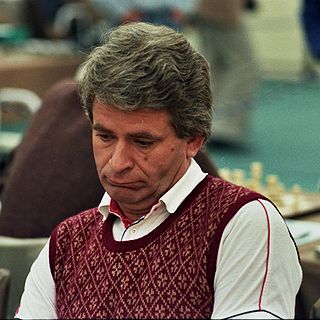
Boris Vasilievich Spassky is a Russian and former Soviet chess grandmaster who was the tenth World Chess Champion, holding the title from 1969 to 1972. Spassky played three world championship matches: he lost to Tigran Petrosian in 1966; defeated Petrosian in 1969 to become world champion; then lost to Bobby Fischer in a famous match in 1972.
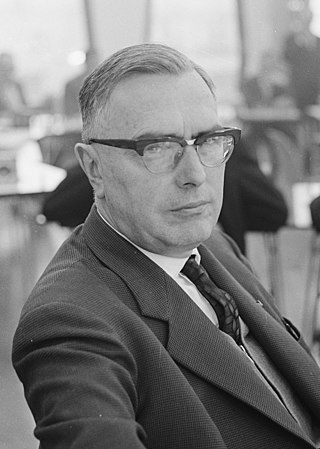
Machgielis "Max" Euwe was a Dutch chess player, mathematician, author, and chess administrator. He was the fifth player to become World Chess Champion, a title he held from 1935 until 1937. He served as President of FIDE, the World Chess Federation, from 1970 to 1978.

Tigran Vardani Petrosian was a Soviet-Armenian chess grandmaster and the ninth World Chess Champion from 1963 to 1969. He was nicknamed "Iron Tigran" due to his almost-impenetrable defensive playing style, which emphasized safety above all else. Petrosian is often credited with popularizing chess in Armenia.

The World Chess Championship is played to determine the world champion in chess. The current world champion is Gukesh Dommaraju, who defeated the previous champion Ding Liren in the 2024 World Chess Championship.

Mikhail Nekhemyevich Tal was a Soviet and Latvian chess player and the eighth World Chess Champion. He is considered a creative genius and is widely regarded as one of the most influential players in chess history. Tal played in an attacking and daring combinatorial style. His play was known above all for improvisation and unpredictability. Vladislav Zubok said of him, "Every game for him was as inimitable and invaluable as a poem".

David Ionovich Bronstein was a Soviet chess player. Awarded the title of International Grandmaster by FIDE in 1950, he narrowly missed becoming World Chess Champion in 1951. Bronstein was one of the world's strongest players from the mid-1940s into the mid-1970s, and was described by his peers as a creative genius and master of tactics. He was also a renowned chess writer; his book Zurich International Chess Tournament 1953 is widely considered one of the greatest chess books ever written.

Vasily Vasilyevich Smyslov was a Soviet and Russian chess grandmaster who was the seventh World Chess Champion from 1957 to 1958. He was a Candidate for the World Chess Championship on eight occasions. Smyslov twice tied for first place at the USSR Chess Championships, and his total of 17 Chess Olympiad medals won is an all-time record. In five European Team Championships, Smyslov won ten gold medals.

Paul Keres was an Estonian chess grandmaster and chess writer. He was among the world's top players from the mid-1930s to the mid-1960s, and narrowly missed a chance at a World Chess Championship match on five occasions. As Estonia was repeatedly invaded and occupied during World War II, Keres was forced by the circumstances to represent the Soviet Union and Nazi Germany (1941–44) in international tournaments.

Leonid Zakharovych Stein was a Soviet chess Grandmaster from Ukraine. He won three USSR Chess Championships in the 1960s, and was among the world's top ten players during that era.

Alexander Alexandrovich Kotov (Алекса́ндр Алекса́ндрович Ко́тов; was a Soviet chess grandmaster and author. He was a Soviet chess champion, a two-time world title Candidate, and a prolific writer on the subject of chess. Kotov served in high posts in the Soviet Chess Federation, and wrote most of his books during the Cold War. The importance and breadth of Kotov's work rank him among the all-time greats in this field.

Nona Gaprindashvili is a Georgian chess Grandmaster. Noted for her aggressive style of play, she was the women's world chess champion from 1962 to 1978, and in 1978 was the first woman ever to be awarded the FIDE title of Grandmaster. She was inducted into the World Chess Hall of Fame in 2013 and the Presidential Order of Excellence in 2015.

Friðrik Ólafsson is an Icelandic chess grandmaster. He was president of FIDE from 1978 to 1982. He is a six-time Icelandic Chess Champion and a two-time Nordic Chess Champion.

Elisaveta Ivanovna Bykova was a Soviet chess player and twice Women's World Chess Champion, from 1953 until 1956, and again from 1958 to 1962. She was awarded the titles of Woman International Master in 1950, International Master in 1953, and Woman Grandmaster in 1976. In 2013, she was inducted into the World Chess Hall of Fame.
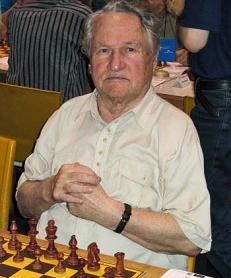
Ratmir Dmitrievich Kholmov was a Russian chess Grandmaster. He won many international tournaments in Eastern Europe during his career, and tied for the Soviet Championship title in 1963, but lost the playoff. Kholmov was not well known in the West, since he never competed there during his career peak, being confined to events in socialist countries. His chess results were impressive, so this may have been for security reasons, as Kholmov had been a wartime sailor. But he was one of the strongest Soviet players from the mid-1950s well into the 1970s, and was ranked as high as No. 8 in the world by Chessmetrics.com from August 1960 to March 1961. Kholmov stayed active in competitive chess right to the end of his life, and maintained a high standard of play past the age of 80.

Tatiana Zatulovskaya was an Israeli chess player. She was a three-time Soviet women's champion and twice the world women's senior champion. She was awarded the titles Woman International Master (WIM) in 1961 and Woman Grandmaster (WGM) in 1976 by FIDE. Her last name may also be spelled as Zatulovskaia or Zatulovskaja.
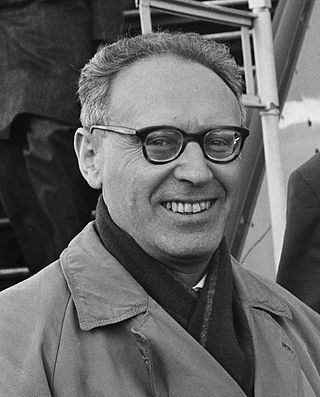
At the World Chess Championship 1963, Tigran Petrosian narrowly qualified to challenge Mikhail Botvinnik for the World Chess Championship, and then won the match to become the ninth World Chess Champion. The cycle is particularly remembered for the controversy surrounding the Candidates' Tournament at Curaçao in 1962, which resulted in FIDE changing the format of the Candidates Tournament to a series of knockout matches.
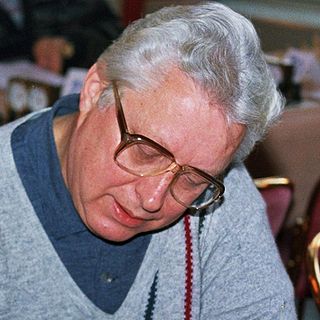
Evgeni Andreyevich Vasiukov was a Russian chess player, one of the strongest in the world during his peak. He was awarded the title of Grandmaster by FIDE in 1961. During his career, he won the Moscow Championship on six occasions and scored numerous victories in international tournaments, such as Belgrade Open 1961, Moscow International 1961, East Berlin 1962, Reykjavik 1968, and Manila 1974. He was rarely at his best in Soviet Championship Finals, which were among the very toughest events in the world, and never made the Soviet team for an Olympiad or a European Team Championship. Vasiukov won the World Senior Chess Championship in 1995.
The Women's Chess Olympiad is an event held by FIDE since 1957, where national women's teams compete at chess for gold, silver and bronze medals. Since 1976 the Women's Chess Olympiad has been incorporated within Chess Olympiad events, with simultaneous women's and open tournaments.

Viktor Lvovich Korchnoi was a Soviet and Swiss chess grandmaster (GM) and chess writer. He is considered one of the strongest players never to have become World Chess Champion.



















